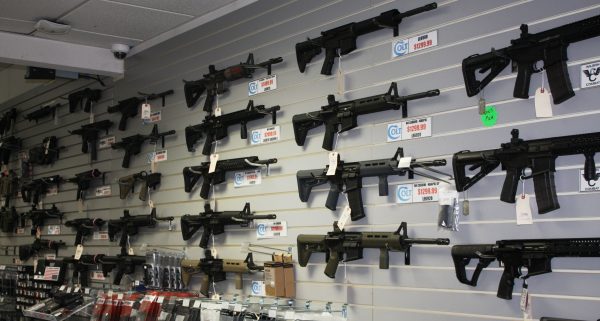
In the two weeks since the “unspeakable” mass shooting in Las Vegas, a lot of people have been speaking about it, with several different polling outfits, and the popular opinion is that stricter gun control would be a good thing.
There’s just one problem with this, say some gun owners on social media: The Second Amendment is not guided by popularity contests. It delineates and protects a fundamental right to keep and bear arms. That’s not a right “granted” by the government to be regulated or removed by public or bureaucratic whim.
Ever since the right of Nazis to parade in Skokie was protected by a 5-4 Supreme Court First Amendment ruling in 1977, the Second Amendment right to keep and bear arms should have been considered settled law. It took more than 30 years for the high court to hand down another 5-4 ruling that made this clear, however in the 2008 Heller ruling.
There is more than just a little irony in the Nazi case. At the time, Warren E. Burger was chief justice of the court. That’s the same Warren Burger who later declared in a 1991 interview on PBS that the Second Amendment “has been the subject of one of the greatest pieces of fraud, I repeat the word ‘fraud,’ on the American public.”
Perhaps Burger’s view represented the notion so many people have that the Bill of Rights covers nine civil rights and one heavily-regulated government privilege. But in 2008 and again in 2010, Supreme Court rulings put that notion to rest for all but the most stubborn minds. Or, at least they should have.
Rights are not here one day and gone the next.
But according to a Morning Consult/Politico survey, 64 percent of voters “support stricter gun laws…including 41 percent who strongly support them.” Politico noted that only 29 percent oppose stricter gun laws.
Rasmussen found that 52 percent of likely voters think this country needs stricter gun laws.
An NPR/Ipsos survey found that “Eight-in-10 Americans…favor bans on assault weapons, high-capacity ammunition magazines and ‘bump stocks,’ an accessory used by the Las Vegas shooter that allows a semi-automatic rifle to fire like an automatic weapon.
“Eight-in-10 likewise said they favor a federal database to track all gun sales,” NPR added. “On each of these questions, majorities of Democrats, independents and Republicans all were in favor of the restrictions to some degree.”
Could all of these people have skipped class in high school American government courses on the day teachers discussed the Bill of Rights?
The good citizens of Skokie didn’t want neo-Nazis strutting through their community with swastika flags, and probably nobody else did, either, but the high court under Chief Justice Burger delivered the bad news that the Nazis’ free speech rights essentially weren’t subject to a popularity contest.
Like it or not, that same principle must apply to the Second Amendment. Bans on firearms owned by millions of peaceful citizens may seem like a good idea until it festers and morphs into something larger.
That sentiment was evident at the recent Gun Rights Policy Conference, which wrapped up in Dallas just hours before the carnage in Las Vegas. Isn’t it curious how Second Amendment activists can see this problem when so many of their fellow citizens apparently cannot?